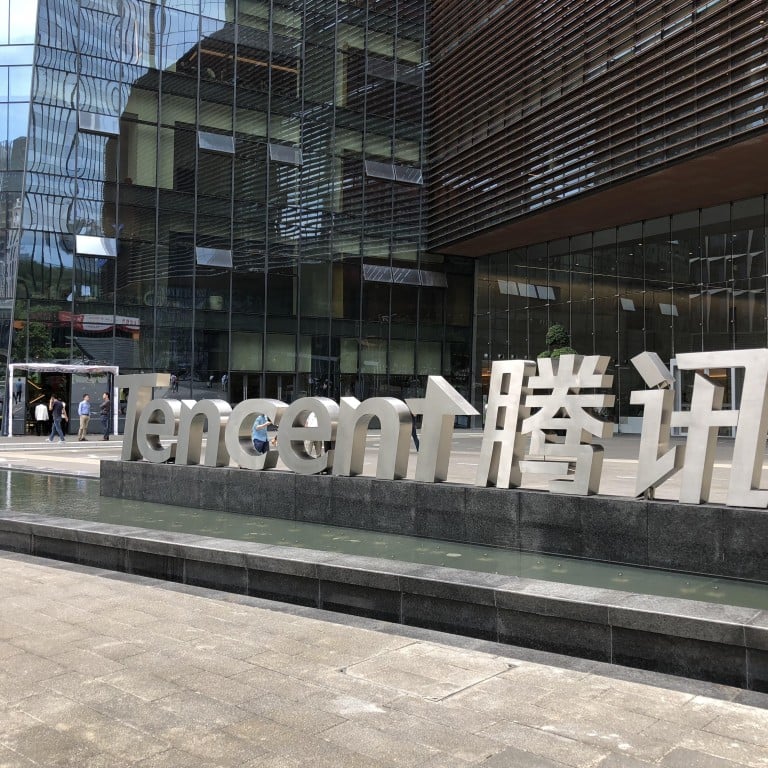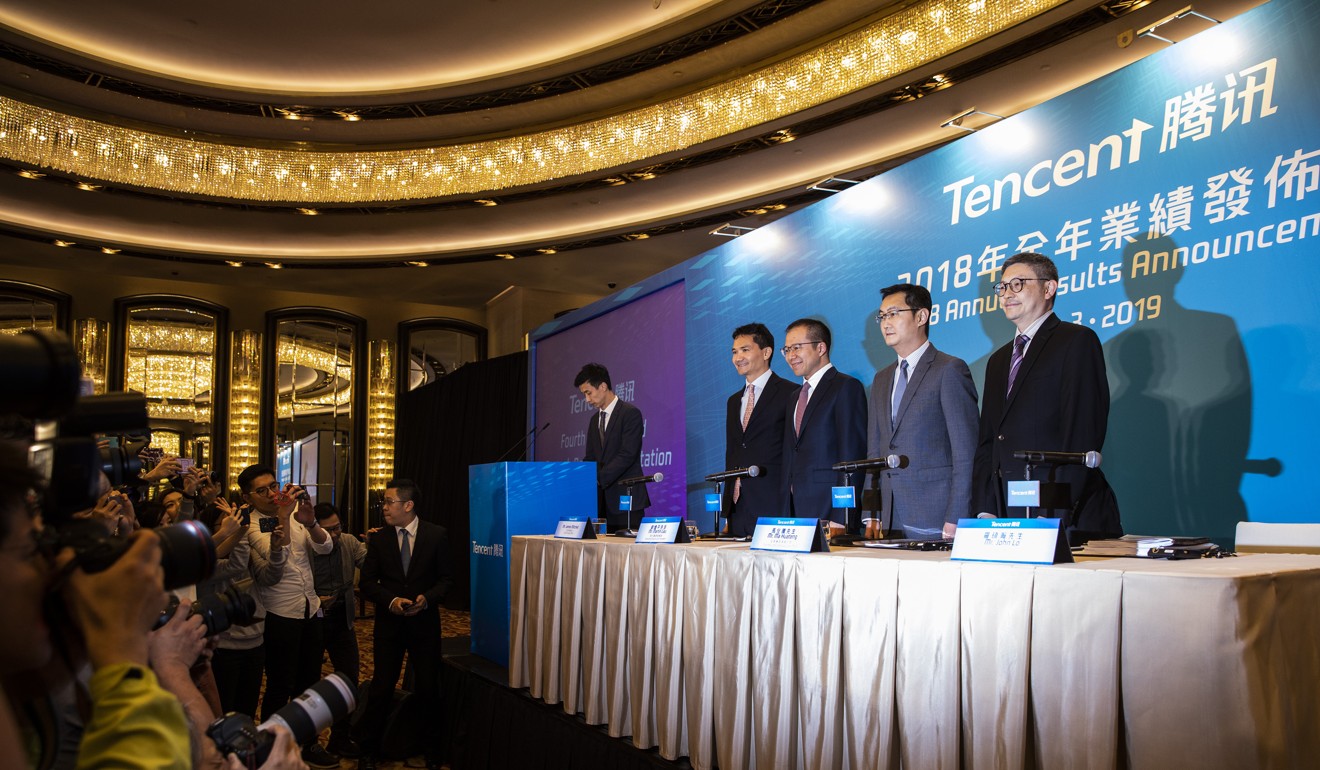
Tencent to grant directors powers to buy back up to 10 per cent of company’s shares
- Buy-back will spur a rally in Tencent’s stock price as it shows the management is confident in the company’s fundamentals, says Norman Hui, analyst with Zhongtai International Securities
Tencent Holdings, operator of China’s biggest social media and video gaming business, said that the company will grant approval to the directors to buy back 10 per cent of shares at the annual general meeting.
Tencent, which has the biggest weighting of 9.9 per cent on the Hang Seng Index, said in a filing to the Hong Kong stock exchange that the repurchase is subject to shareholder approval during the AGM on May 15.
The Shenzhen-based company currently has a total of 9.52 billion shares in circulation.
Shares of Tencent closed up 1.1 per cent at HK$365 per share on Monday.

Tencent’s shares have been a beneficiary of a rising Hong Kong market, which entered bull territory on Monday. The Hang Seng Index rose 1.8 per cent, taking its overall gains to 20.2 per cent since a recent low in October.
Tencent’s shares have risen nearly 45 per cent since October 30, when it was trading at HK$252.20.
This year alone, it is up more than 16.2 per cent. But it remains 23 per cent below its all-time high of HK$474.60 reached on January 23, 2018.
“The buy-back will spur a rally in Tencent’s stock price as it shows the management is confident in the company’s fundamentals and has strong liquidity to support the move,” said Norman Hui, a Hong Kong-based analyst with Zhongtai International Securities.
The shares of the Chinese internet giant have had a roller-coaster ride in the past 14 months, powered by its revenue-generating video games business and ubiquitous WeChat super app before a much-chronicled government crackdown on content and gaming wiped out almost half the company’s value by October.
The mainland authorities had halted video game licence approvals for nine months until December 29, 2018.
The previous time Tencent did a buy-back was in September 2018, when it spent HK$887 million on 2.85 million shares.

In a separate exchange filing, Tencent said that it would raise up to US$20 billion through a medium term notes programme, up from US$10 billion announced previously.
On March 21, Tencent reported a net profit of 14.2 billion yuan (US$2.1 billion) for the December quarter, and a 10 per cent increase in full-year net profit to 78.7 billion yuan, both of which missed analysts’ estimates.
To fuel the company’s growth, Tencent has sharpened its focus on cloud computing, amid a slowdown of its video gaming business.
“We not only expect the cloud business to contribute to company revenue, but also serve as the platform connecting the consumer internet and industrial internet,” said Tencent’s chairman and chief executive Pony Ma Huateng during a briefing on its earnings.

